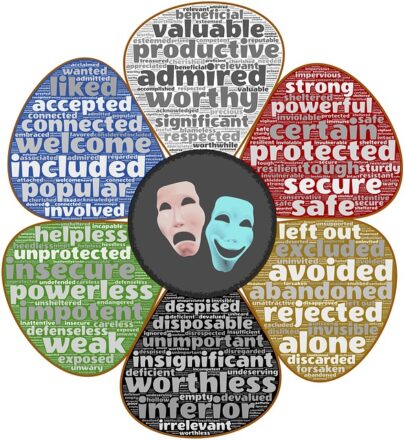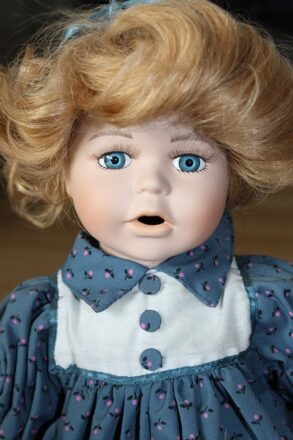In a recent turn of events, I was discussing with a professional counselor various aspects of relationships with people who are members of the cult that I grew up in. Specifically, we were discussing relationships with family members who are still involved in the group. Although we had discussed this many times before, he brought up something that really got me to thinking. He mentioned attachment theory, saying that from his perspective, attachment theory had a lot to do with the reason it is so difficult to completely distance oneself from the pain of rejection when one leaves the group.
Being a researcher myself, and involved in mental health issues, I immediately saw what he was saying and started researching attachment theory. Attachment theory basically has the concept that there are several different ways that children attach to and with parents when they are infants and toddlers.
You can Google “attachment theory” and find all kinds of information about that yourself, but the point is that, based on this theory, emotional attachment is a necessity to human well-being. Children who do not develop secure attachment with their parents in infancy and toddler-hood later struggle to learn how to have healthy attachments to friends and romantic partners.
Interestingly enough, the way that a cult works is to prey on unhealthy emotional attachment. This explains why I have very rarely seen an emotionally healthy person stay in the cult in which I was raised. They might come in but they would very rarely stay in this environment. As the unhealthy environment begin to push and pull at them, they would leave, because this environment keeps a person dependent and involves a lot of anxiety.
Having been raised in this environment by parents who were raised in this environment, needless to say, it is clear that I did not have healthy or secure attachment. For me, it was definitely the anxiety type of attachment (not the professional title–used for explanation purposes). People pleasing was ingrained into me from what feels like conception. I don’t ever remember a time in my entire life when pleasing others was not a priority for me, until recently. Pleasing others was a way to gain that intimacy that I craved. I wanted to be loved and accepted, and the only way to get that need met was to work hard to please others.
The cult ideology is based on this concept, when you really stop to think about it. In most cases, you are striving to please the pastor, for without pleasing your pastor, you cannot please God. You work hard to please God, because in many ways you are made to feel that he won’t love you, or at least he cannot accept you, unless you fulfill the demands of a list of behaviors that please him.
This is anxiety inducing, and I would many times hear myself and others in the group praying to God, asking him if we were measuring up, repenting for anything we couldn’t remember having done, and excessively worrying about status with God. I lived in fear that at any moment the rapture might take place and I would be left behind because of some failure that I did not remember to repent of. I always felt that the question “are you ready for the rapture?” couldn’t really be answered. I hoped I was ready for the rapture, but who could know for sure? Sometimes I still struggle with that type of thinking. Does God love me? I was never really sure. He might love me, if I could only measure up!
Learning to think about grace has been a journey. I often revert back to wondering if he loves me, or if he can accept me, with all my faults and failures. In a recent conversation with a close friend, I was telling him that I did not know if I was saved or not, and I did not know any way to know for sure. He began to talk to me about the fact that I believe in God and I talk to God. He pointed out that God’s hand in my life is obvious. God continues to come through for me in miraculous ways in moments when I need it the most. He pointed out to me that, if God didn’t love me, and if I was no longer his child, his hand would not be on my life in this way. It was an interesting conversation, and I now recognize that the insecure attachment with parents and with God, as a result, are involved in anxieties and worries that I have always had. Trying to please others and measure up has been a blight on my life thus far.
I know better than to trust, and I cannot relax blindly in accepting “love” from them. I know all too well that a little financial involvement, with a little emotional involvement soon morphs into trying to control me. I hate that I had to ask for financial help, because I equate that with handing over my control. It had to be done, but the fear is real. This is what caused me to understand this as an attachment issue.
My parents solely used physical discipline when I was growing up. I was, by their own admission, a very compliant child. However, any small infraction incurred a spanking, usually with a switch or a paddle. I lived with anxiety and fear of upsetting them. I rarely committed an intentional infraction. However, the intent of the heart never mattered. An infraction was an infraction, and physical discipline would follow. I am not at all blaming my parents, because they were simply a product of their environment, and they loved me in the only way they knew how. In many ways they were very loving parents, providing for our needs to the maximum, but emotionally the attachment was not completely secure, largely due to their own ideology that God was a judge waiting to discipline every mistake we make as his children.
In the last few years I have begun to attempt to understand grace. Grace is a concept so beyond human understanding that it boggles my mind how God could love us in this way. A God who can not only accept us, but favor us as individuals…it is beyond all reason.
The closest I can ever come to understanding it, at this point in my life, is to look at how I love my children. They have individual differences, and each one has their own strengths and weaknesses. Yet, I would never disown any of them. My love for them is able to accept them fully, even with their flaws. That does not mean that I don’t try to teach them how to overcome weaknesses. It does, however, mean that I offer them empathy and understanding when they fall into familiar patterns. I talk to them and try to help them find ways to grow and mature in those areas, fully understanding that they will never be perfect. I am still very proud of each of them, and I love them passionately. I would do anything to help them any time they are in need. I want them to succeed and thrive. However, as a loving mother, I do not demand perfection from them. I have learned to “not sweat the small things.” I have learned to realize that they have limitations, and that all I need to expect from them is their best. Even when they do not do their best, I still love them and encourage them.
As a parent, I do not focus on the negative aspects, but rather I continuously praise the positive in my children. I believe that God uses this to teach me about grace. God is not a God of anxiety inducing perfectionism. There is no way that I believe God would want his children to go around wrapped in anxiety and fear all the time, because of their fear of failing him.
God wants us to be secure and rest in his love. There is no rest where there is fear. The Bible says that “perfect love cast out all fear.” God’s love is perfect, and as we learn more and more about that, the more secure our attachments with him and others will be. It may not be possible to ever have a secure relationship with my parents. It takes two to have a relationship. However, I believe that as I become more secure in God’s love, I can better recognize attachments that are secure and safe for me. I can then know when to open up to and when to stay closed to different people in order to protect myself.








